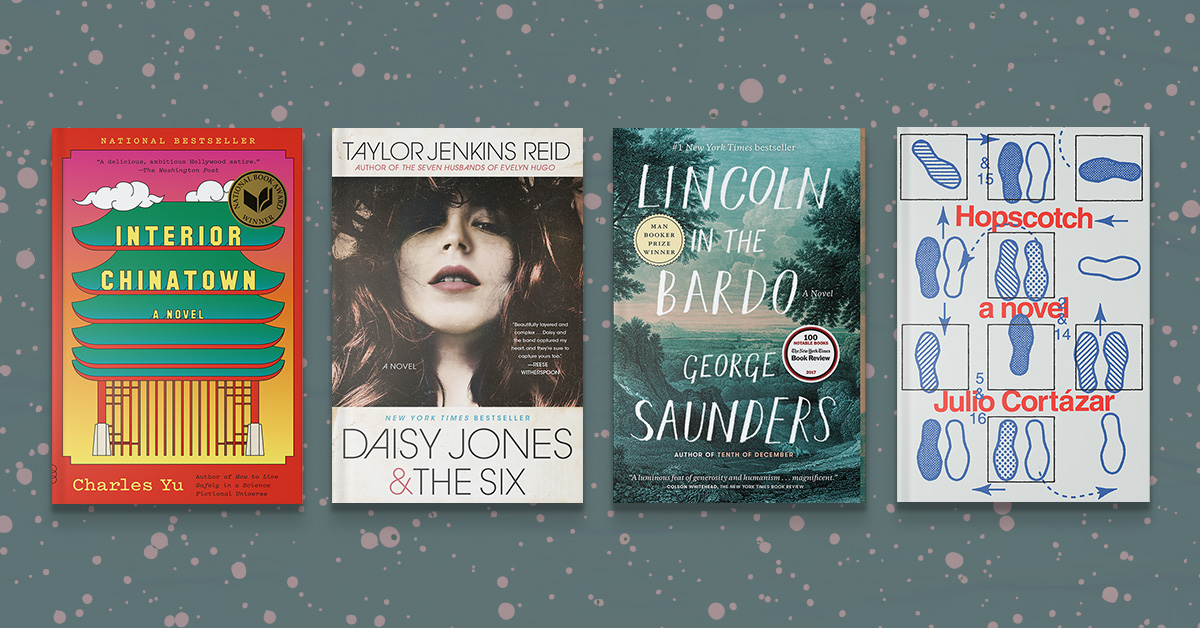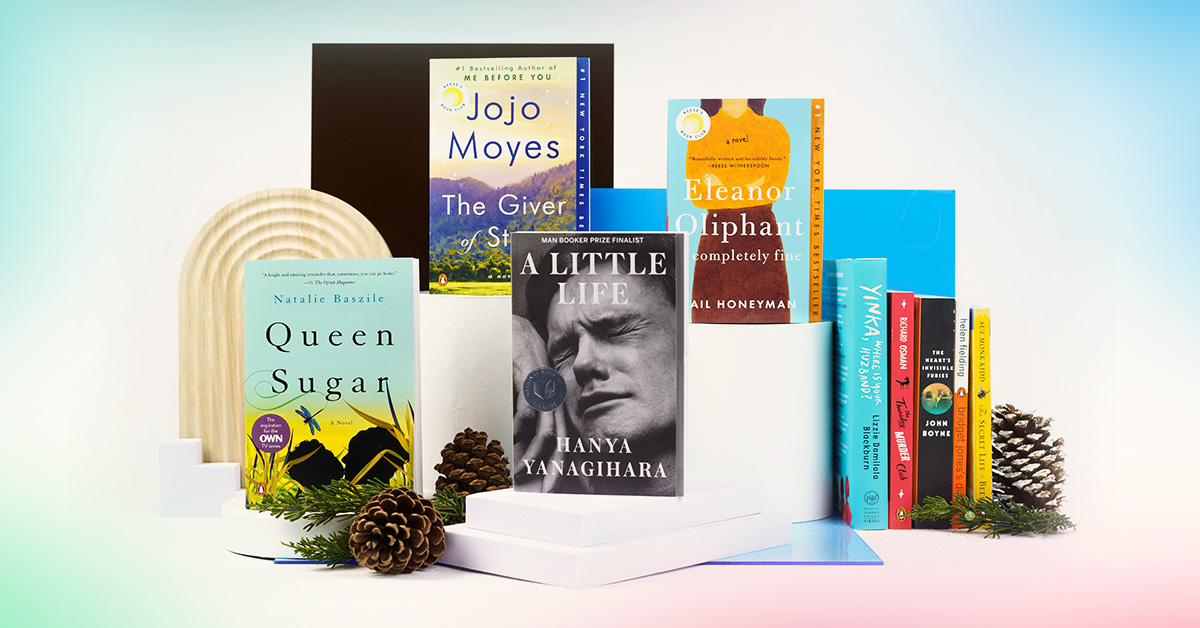We’re living vicariously through our authors and their stories set around the world! So far, we’ve visited France Sanaë Lemoine, Morocco with Laila Lalami, South Korea with Michelle Zauner, Malaysia with Zen Cho, Indonesia with Jesse Q. Sutanto, and Jamaica with Nicola Yoon.
We asked Maggie Shipstead, author of Great Circle, and Julian Sancton, author of Madhouse at the End of the Earth a few questions on their experiences traveling to Antarctica! Maggie is the bestselling author of the novels Astonish Me and Seating Arrangements, which won the Dylan Thomas Prize and the Los Angeles Times Book Prize for First Fiction. Julian Sancton is a senior features editor at Departures magazine, where he writes about culture and travel. He has reported from every continent, including Antarctica, which he first visited while researching this book.
What is it like to travel to Antarctica, since it is such a remote location?
Maggie: Going to Antarctica by sea, there’s an invisible but real line you cross on the way down called the Antarctic Convergence. This is where the cold subantarctic waters meet the very cold Antarctic waters, and the temperature differential causes an upwelling and creates a nutrient-rich zone. You start seeing different kinds of seabirds, more of the magnificent royal and wandering albatrosses, and the weather changes and gets colder. It feels like you’re crossing into another world, which you are. I’m pretty firm that Antarctica is an impossible place to fully imagine. It’s so harsh, so forbidding, so extraordinarily beautiful. That first glimpse of Antarctica’s ice-choked, mountainous coastline is like nothing else. I’d gone to sleep at sea and woken up at Cape Adare, suddenly immersed in a fantastical landscape, and it really hit me that this whole continent is just there, doing its thing at the bottom of the planet, entirely indifferent to human existence (though vulnerable to it). Experiencing Antarctica is pure privilege. I grapple with the huge carbon cost of polar tourism, but, sadly, I do think people often need to see a place to understand that it’s worth protecting.
Julian: It feels like space travel. The only difference is that you can breathe the air. Up until pretty recently, anyone traveling to Antarctica from South America, as I did, had to sail across the notorious Drake Passage. In modern ships, this takes two days. A tour operator friend of mine told me that, as long and nauseating as it is, the journey is a crucial overture to any Antarctic adventure, giving you a (literally) visceral sense of the continent’s remoteness. But as much as I wanted to put myself in the skin of my characters, I felt that spending two days hurling over the gunwales was not the best use of my time and money. So I took a two-hour flight from Punta Arenas, Chile, to a research base on King George Island, where I boarded a ship bound for the Antarctic peninsula. We sailed all night and at 4:30 AM, in the early, mother-of-pearl light of the austral summer, I walked out on the deck and felt myself tearing up. Before me was the same phantasmagorical landscape that had greeted the Belgica 120 years earlier. It was like something out of Tolkien, or the cover of a Yes album. Glacier-coated mountains shot straight out of the water as if the sea level had risen halfway up the Himalayas.
What inspired you to visit Antarctica for the first time?
Maggie: I’ve written a longer account of this elsewhere, but the first time I went was because I’d met someone whose work as an expedition leader took him there several times per season. My trip was pretty much a five-week-long first date on a ship! We left from New Zealand and rattled down through these subantarctic islands that are fascinating and full of wildlife, and then there was a five-day sea crossing to the continent. The vast majority of visitors go to Antarctica from South America because the Antarctic Peninsula sticks up relatively far to the north and is by far the most efficient point of access, though the Drake Passage can be nasty. When you go to the Ross Sea from New Zealand, it means a lot more time in the famously rough Southern Ocean and necessitates traveling significantly further south, like hundreds of miles, just to get to land. I bartended on the ship and got used to making drinks in twenty-foot swells—my top tip is to adopt a wide stance. The second time I went was via South America (thanks to Julian, who sent me on a magazine assignment!). I had a little bit of attitude about the Peninsula, but it turned out I’m a fool because the Peninsula is incredible. Just stunning.
It feels like you’re crossing into another world, which you are.
Maggie Shipstead
Julian: I’d always been fascinated by the idea of Antarctica, its majesty and its menace. But I never wanted to go. Leaving aside the enormous carbon footprint, the idea that boatloads of tourists could now take leisurely cruises and sip martinis in the same waters where once only the boldest explorers dared to venture struck me as wrong. I felt there should be some places on earth that remain out of my reach, that nature should have to herself. My attitude changed when I decided to write a book about an Antarctic expedition. I felt there was no way I could recreate the setting simply by relying on diaries and photographs. I had to see the mesmerizing range of blues, hear the braying of the skuas, and breathe in the rotten seafood reek of penguin rookeries.
What is one of your favorite memories of being in Antarctica?
Julian: On our way back up to civilization, our ship anchored in the natural harbor of Deception island. The horseshoe-shaped island is in fact the caldera of an active volcano. You can see steam rising from the black-sand beach and, even in subzero weather, the water is warm. There’s an abandoned whaling station from the early twentieth century. In the late 60s, a series of violent eruptions destroyed a number of research facilities there, giving the island a post-apocalyptic feel. At one point, I saw a few of my shipmates disappear into a small pass in the distance. Out of curiosity, I followed their trail. But it began snowing heavily, and within thirty minutes I could no longer see their footprints. I was utterly lost. I welcomed the mild panic. It was the closest I got to experiencing the kind of fear the men of the Belgica lived with for more than a year.
I felt there was no way I could recreate the setting simply by relying on diaries and photographs.
Julian Sancton
Maggie: Oh, there are so many. I’m tempted to talk about rare things I’ve seen, like emperor penguins (they nest in winter when commercial trips don’t run, so you have to be very lucky), or these seldom-visited islands called the Balleny Islands, or Robert Falcon Scott’s hut, but a memory that warms my heart was watching my mom fall in love with penguins. She came with me to the Peninsula, and the first time we went to shore, she discovered a deep affinity with Gentoo penguins, which are, to be fair, unbelievably charming animals. She couldn’t get enough of them. She brought such joy to that trip.
What do you wish people knew about Antarctica?
Julian: That Arctic and Antarctic and not synonyms, but rather literal polar opposites. I can’t tell you the number of people who describe my book as an Arctic adventure.
Maggie: Same as Julian! It’s not the Arctic. There aren’t any polar bears, just like there aren’t penguins in the Arctic. Antarctica is an actual landmass, whereas the extreme north of the planet is ocean. Also, the interior of Antarctica is a vast plain of frozen freshwater. At its thickest point, the West Antarctic Ice Sheet is more than 15,000 feet thick.
Which books do you recommend for someone planning a trip?
Julian’s Picks:
Erebus: The Story of a Ship, by Michael Palin: The book I read in my cabin in Antarctica, about a vessel that achieved Antarctic glory before being crushed in the Arctic ice.
The Last Place on Earth, by Roland Huntford: The definitive book on the race to the South Pole, pitting England’s Robert Falcon Scott against Norway’s Roald Amundsen (incidentally, one of the heroes of Madhouse at the End of the Earth).
Endurance: Shackleton’s Incredible Voyage, by Alfred Lansing: The classic account of one of history’s most inspiring survival stories.
I May Be Some Time: Ice and the English Imagination, by Francis Spufford: A gorgeously written intellectual history of polar obsession.
Maggie’s Picks:
End of the Earth: Voyage to Antarctica by Peter Matthiessen: Matthiessen was an extraordinarily precise chronicler of the natural world, and he gets everything right.
The Worst Journey in the World by Apsley Cherry-Garrard: A classic account of a 1911 sledge expedition to collect emperor penguin eggs in the dead of winter. The title pretty much sums things up.
Terra Incognita: Travels in Antarctica by Sara Wheeler: I first read this as a teenager, and it’s the book that put Antarctica on my personal map. Wheeler goes to McMurdo Station as part of their Artists and Writers Program, and the book moves between her experiences and the history and natural history of the continent. A delightful read.
Thank you Maggie and Julian! Discover their novels, Great Circle and Madhouse at the End of the Earth, as well as more of our book recommendations set in Antarctica.


Add to Bookshelf


